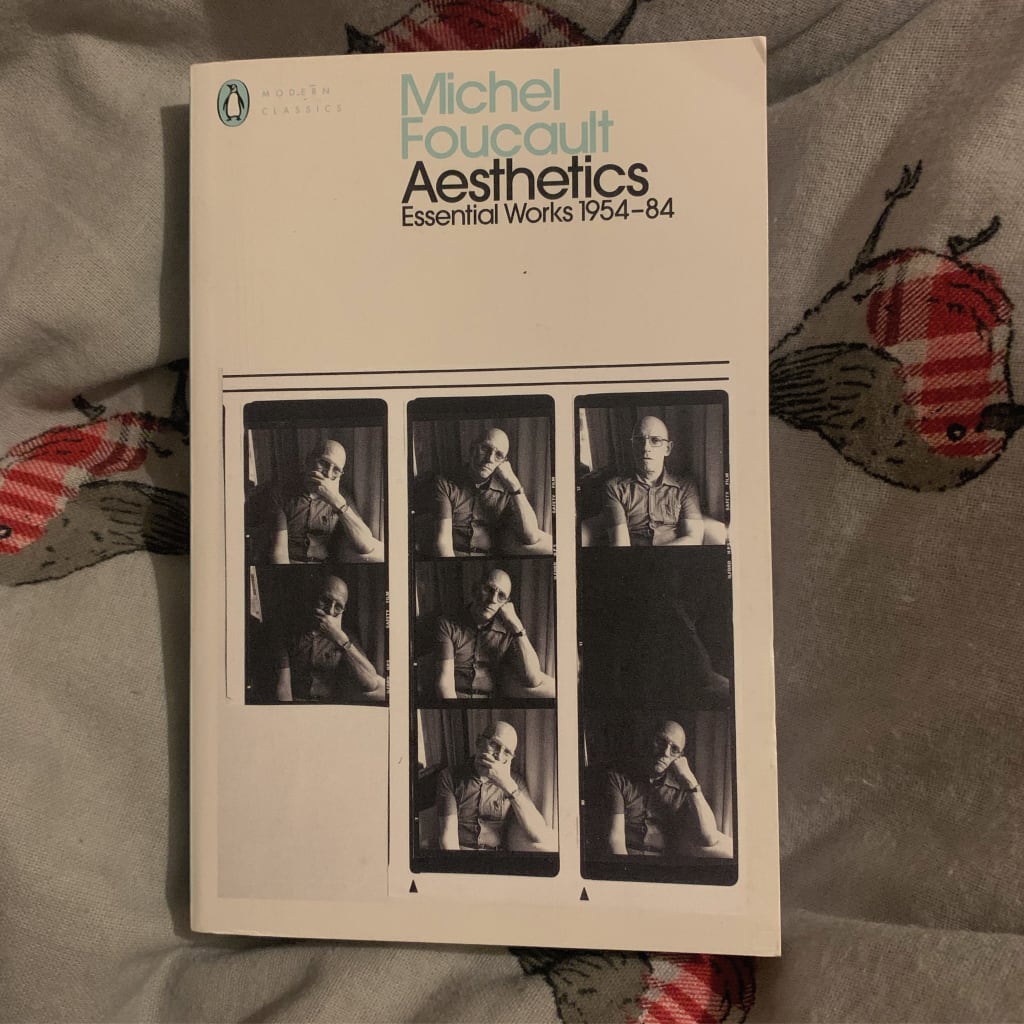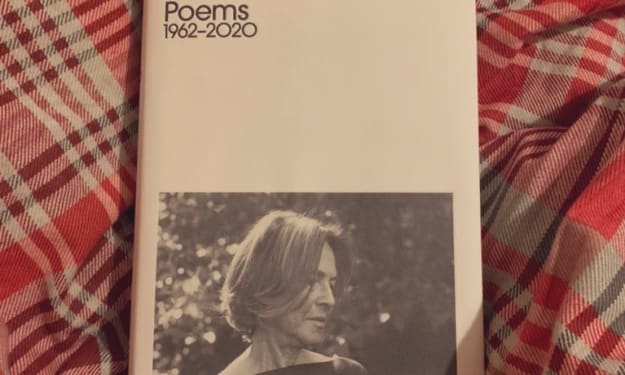Book Review: "Aesthetics" by Michel Foucault
3.5/5 - A complex and somewhat ironic book...

In my time, I have had to read Michel Foucault in order to complete various assignments. His work on literature, the prison system, the oppression and injustice of language and his philosophies on the way in which we live our day to day lives has opened eyes across the globe and, in a way as a reaction to his father's 'bullying' of him, has seemingly rejected the social-conservative position of which he grew up. His analysis of literature and language has to be my favourite aspects of his work because even though they are challenging to read, I must have read these parts a couple of times in order to understand in my best abilities, as to which direction he was heading.
In his essay Language to Infinity, he focuses on gothic literature and pays extra attention to the language uses. He identifies that within gothic literature there are two uses for language to be used in. The first is to communicate something to the reader or communicate something between the characters. These have everything from dialogues to atmospheres contained within them. The next aspect of language is to ward of inevitable death. To push the decline of character backwards, to stop the 'fall' as it were and to possibly help the character stay afloat. Of course, the second aspect is not supposed to work because the fall is essential to a gothic text. But Foucault argues that they are not actually separate entities at all, that they are actually completely together. He states that:
"...they lie within each other, share the same dwelling, constantly intertwine, forming a single verbal network and, as it were, a forked language that turns against itself from within, destroying itself in its own body, poisonous in its very density."
Michel Foucault, in all of his essays whether they be on punishment or literature, the discipline of criminals or the use of language in sexuality, is always concerned with death or, at least the idea of death. He is always concerned with something or someone in the act of being 'outside' the human experience, which is most closely linked to death. Rather like how Roland Barthes discusses literature, Michel Foucault writes about the 'outside' more than the 'inside' and more about the 'other' rather than the 'tropes'.
The one thing that I have found however, that I can never really understand about Foucault, is when he randomly makes up strange neologisms and doesn't explain what they are meant to mean in the context of his essay. Words like 'transdiscursive' are used without stating what they mean. Now, because I have been a student of literature, philosophy, writing and culture for so long, I can work out what it means, but the average person coming to read Foucault out of general interest is going to have some difficulty and that is something that I find is ironic given Foucault's messages about oppression, justice and equality. So words like 'transdiscursive' require some sort of footnote, or at least a short definitition in brackets against the first use of the word in order to make perfect sense to a larger audience.
In conclusion, I feel that this book has a main message that it is trying to get out, which is that literature can be analysed by a series of systems in whatever subculture it may settle in and that these subcultures have a running trend. Another message is that the systems that these cultures employ seems to impact each and every different medium of the culture, whether it has an impact on how the artist reacts to their piece is relatively unknown. Foucault's vague impression of what an author is does not help in this case, at analysing the impact of the aesthetics on the broader culture.
About the Creator
Annie Kapur
200K+ Reads on Vocal.
English Lecturer
🎓Literature & Writing (B.A)
🎓Film & Writing (M.A)
🎓Secondary English Education (PgDipEd) (QTS)
📍Birmingham, UK






Comments
There are no comments for this story
Be the first to respond and start the conversation.